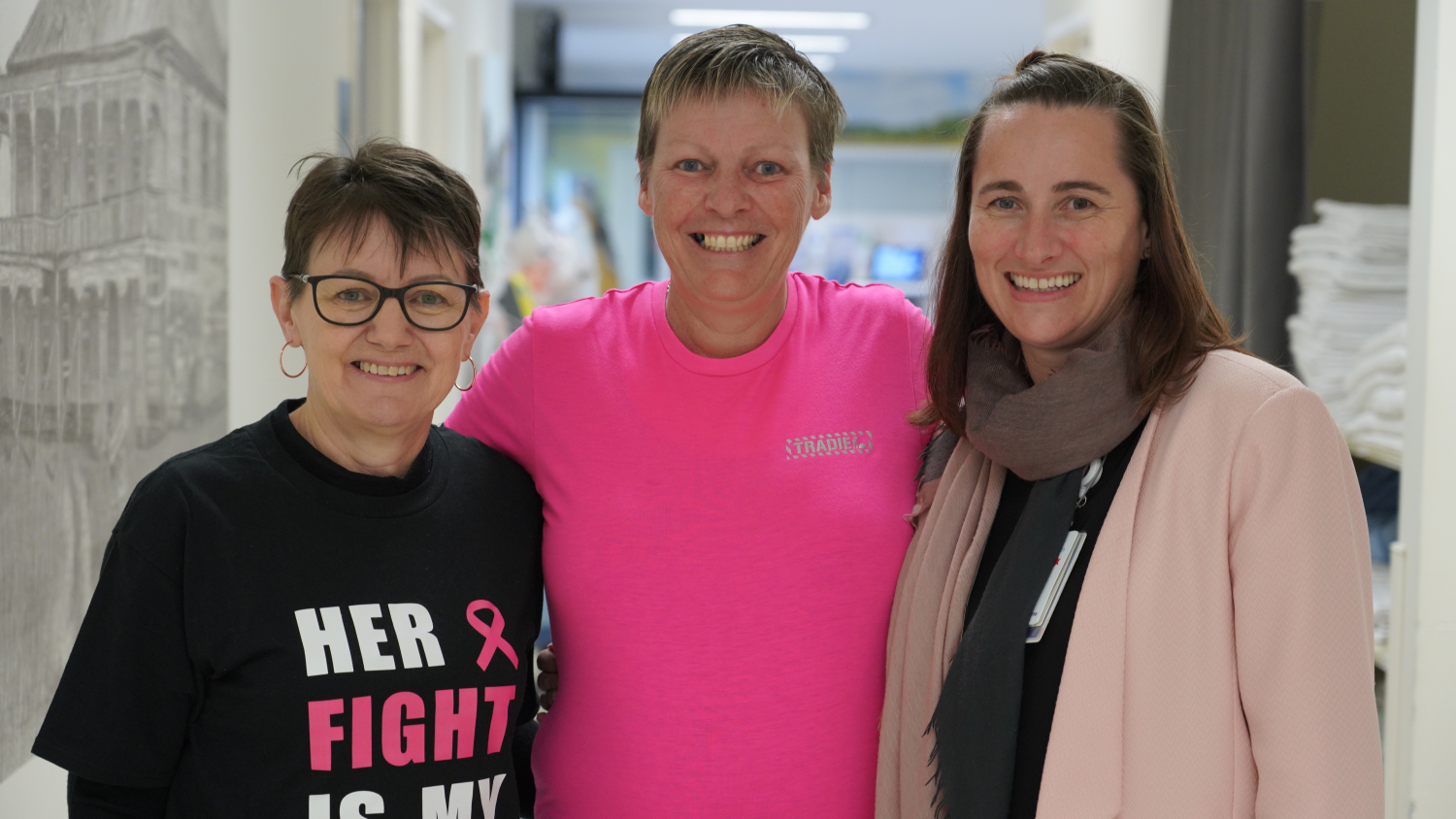Breast cancer doesn’t discriminate
Just over a year ago, Louise Shannon was in the shower when she found a lump on one of her breasts and immediately knew something wasn’t right.
The Numurkah single mum of two teen boys went straight to her GP to investigate and got sent for a mammogram, an ultrasound and a biopsy.
On September 16, 2021, Louise was told she had breast cancer.
“I went in there with my sister Pauly, thinking it was nothing to be worried about but then they told me and all I remember the doctor saying is breast cancer, chemo, radiation, surgery,” she said.
But Louise had her long-time friend Melissa Gilmour at her side, who is a breast and gynaecological cancer support nurse at GV Health.
“I rang Liss (Melissa) straight away and had a chat to her about it,” Louise said.
“She got me some info and everything, sat down with me and said this is what could happen.
“She pretty much did everything for me from then on. She booked me into the oncologist, in to see the surgeon … She’s done everything for me and continues to do everything for me.”
Louise would undergo six months or four rounds of chemotherapy; treatment every three weeks and weekly for another 12 weeks after that, before surgery to remove the remaining lump and a further 20 rounds of radiation treatment after surgery.
“All my cancer is now gone … it’s a big relief but it’s still an ongoing process. But if I have any problems, I ring Liss and I ask what’s going on,” she said.
“I was really lucky with my journey. From day dot my attitude helped a lot. It was ‘okay, I’ve got breast cancer so what do we do?’.”
Melissa explained in her role, she sees a wide range of people come in at every stage of their breast cancer journey and said it was very important for people to be their own advocates.
“That’s what we’re here for as well, to make sure that we advocate for our patients as to what their wishes are and to make sure they’re getting the best quality of life when they’ve been given a cancer diagnosis,” she said.
“People make sure they do their checks so if you know your body you’re the best judge of what’s going on. And if there’s something not quite right, you’re the one who knows something’s not right.”
Melissa also encourages people to check themselves regularly and to seek second opinions if a GP doesn’t think anything’s wrong until they can have a mammogram or an ultrasound done.
Breast checks are best done monthly; premenopausal women and younger girls should check their breasts manually about 10 days after their period ends to allow their hormones to settle, while postmenopausal women can pick a date once a month to do their checks.
People should look for anything new or not normal for them, such as lumps or skin thickening, nipples becoming inverted or turning inward, puckering of the skin or any discharge from the nipples.
Both Louise and Melissa said there was already a lot of awareness going around in the public sphere, but when someone you know has breast cancer it can feel closer.
”You tend to find when a patient is diagnosed, often it has a ripple effect throughout all their friends and family, so it makes people more vigilant in that respect,” Melissa said.
“I think all we can do is just continue to put the word out about making sure people are breast aware.”
“I used to go to the Pink Ribbon Brunch and they’d have people talking and you didn’t really listen and understand as it was all too technical, but I really listen now because I’ve been through it and you understand it more,” Louise said.
“I never thought it was going to happen to me, but pretty much at the end of the day breast cancer doesn’t discriminate. You start to hear of a lot of people getting it.
“If you find a lump or if something doesn’t feel right, get it checked straight away. It’s better to get it checked than not because early detection is key, if you get onto it early you’ve got a higher chance of survival.”
If you have recently been diagnosed with breast cancer and require advice or assistance with treatment, contact the GV Health Oncology unit on 5832 3777
- ADDRESS
Goulburn Valley Health
Graham Street
Shepparton, 3630
- CONTACT
Emergency: 000
Phone: 03 5832 2322
Nurse on call: 1300 60 60 24
for non life threatening injury/illness
